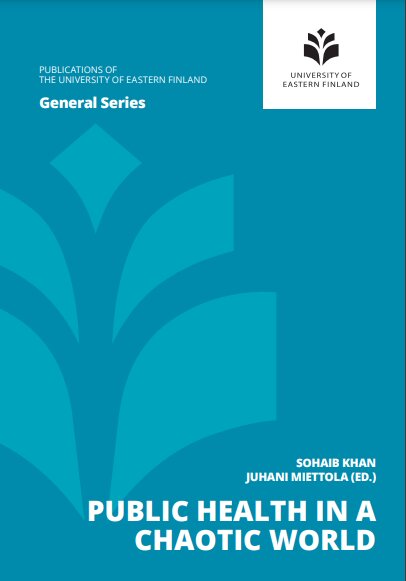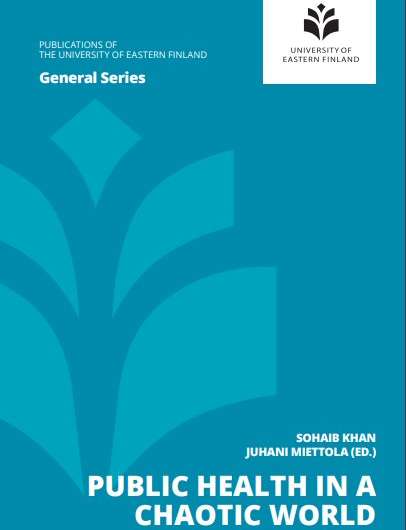

“Public Health in a Chaotic World” is a new book edited by Dr. Sohaib Khan and Dr. Juhani Miettola, aiming to introduce young public health workers to the practicalities and realities of humanitarian crisis relief operations.
Consisting of seven chapters, the book collects public health expert views and eyewitness accounts on various types of humanitarian crises and responses to them.
The book’s timeline starts from the Indonesian Ocean Tsunami of 2004, which made the world realize that a crisis of that scale is no longer local, but a global one. Strategies were revised and introduced to develop and improve collaboration between a wide range of different actors and stakeholders, and the newly devised cluster approach had its first test implementation in the South Asian mega earthquake of 2005, which clarified the challenges and deficiencies of the approach. Since then, many different crises have occurred in different parts of the world, all of them unique and needing customization of strategies.
In the book, public health experts describe their experiences of working in the earthquake relief efforts in Pakistan, in the wars and aftermaths in Afghanistan and Syria, in the refugee crisis of Rohingya in Bangladesh, in the droughts in Eastern Africa, as well as in other places and scenarios.
Since humanitarian crises do not take place in normal settings, and normal operations fail to meet the emerging needs adequately, public health workers also need specialized training and acclimatization. The unstable and compromised nature of the environment impacts the physical and mental health of workers as well as their personal safety and wellbeing. Material rewards do not match the risks humanitarian workers take in such settings; instead, a genuine interest and passion for humanitarian work emerges as an explaining factor.
Source: Read Full Article